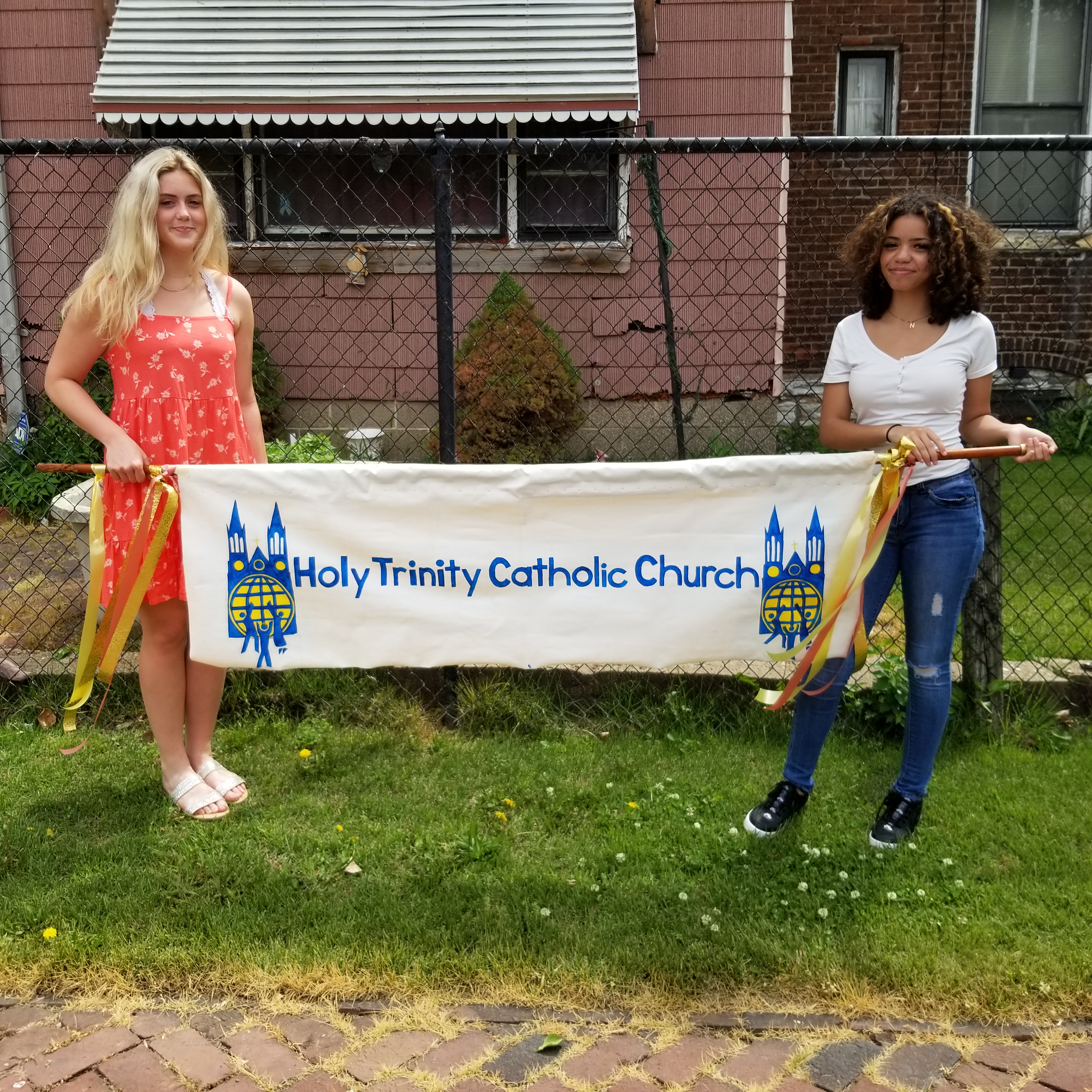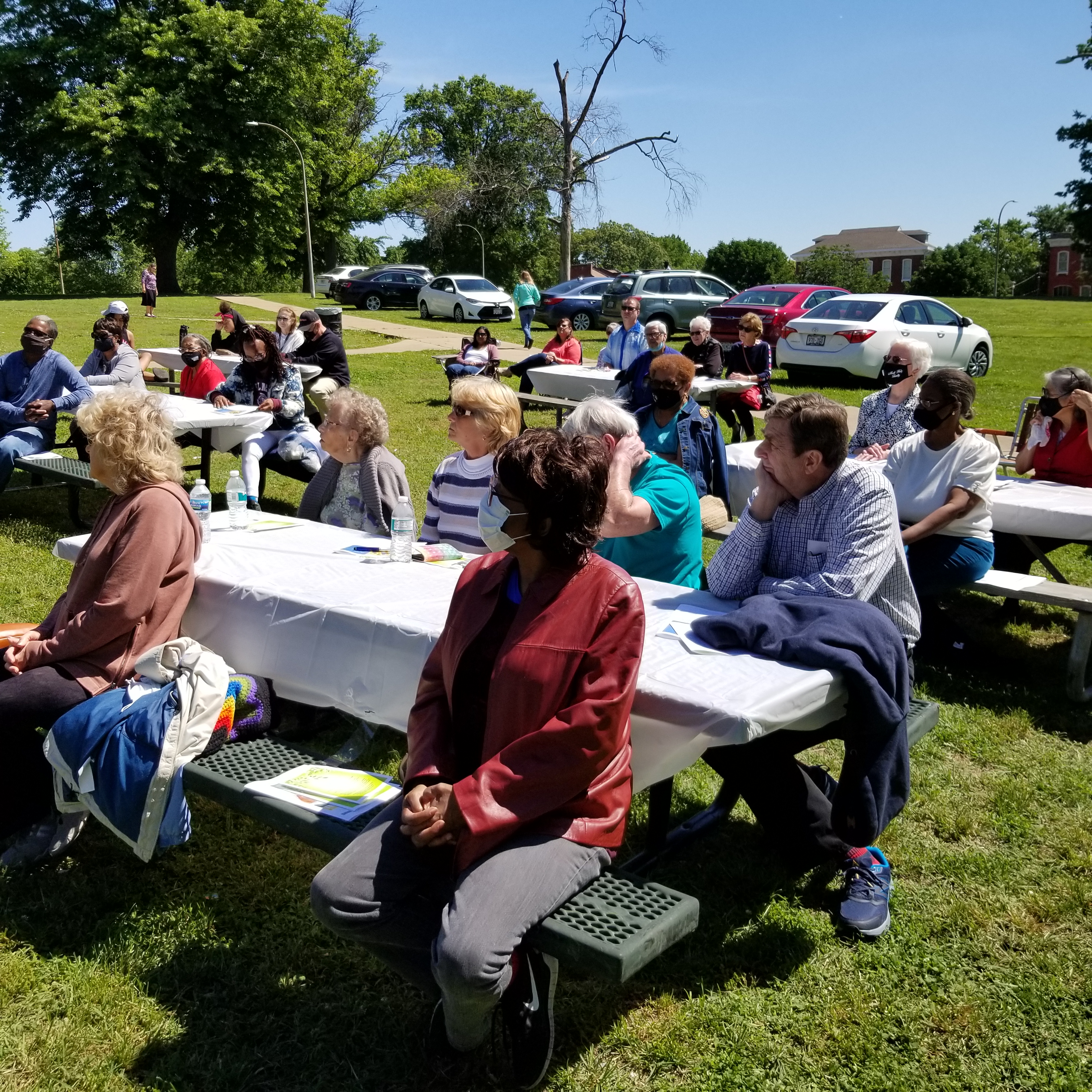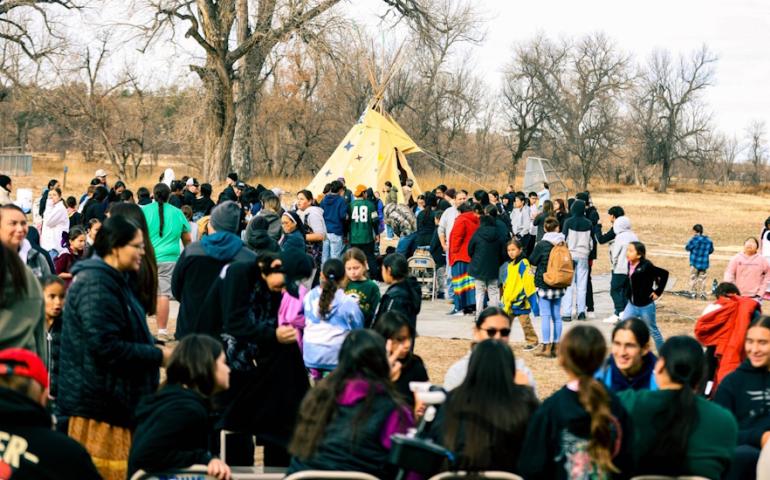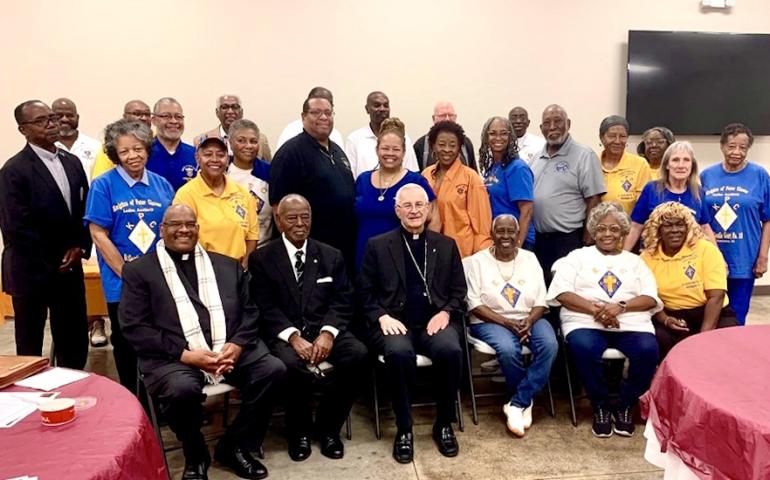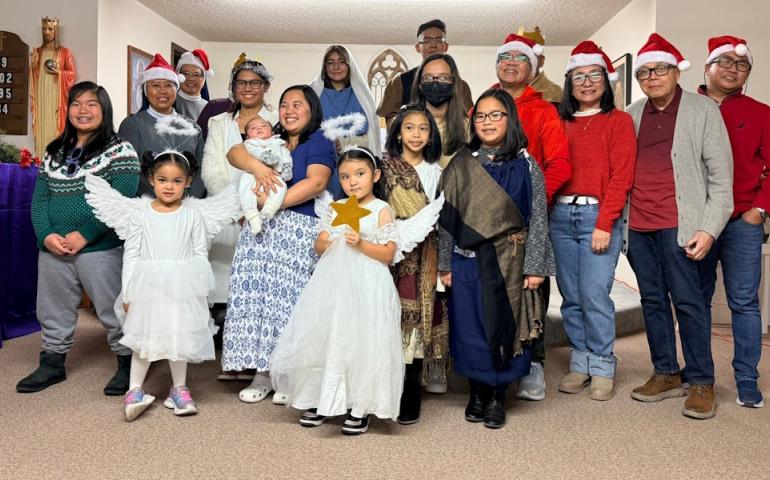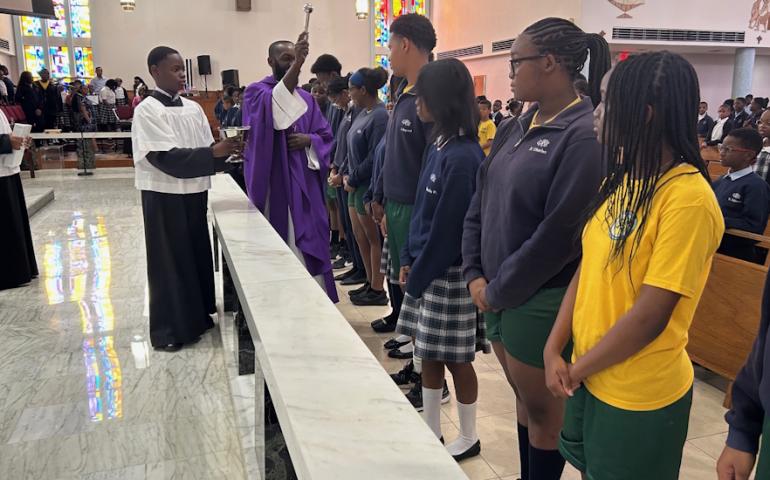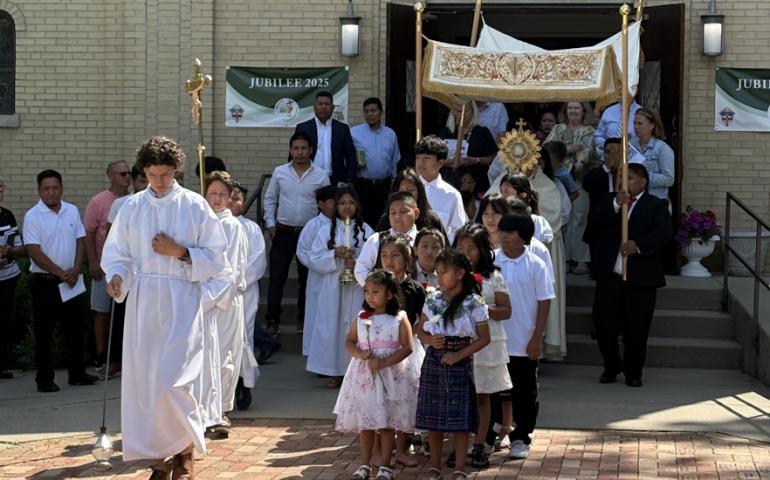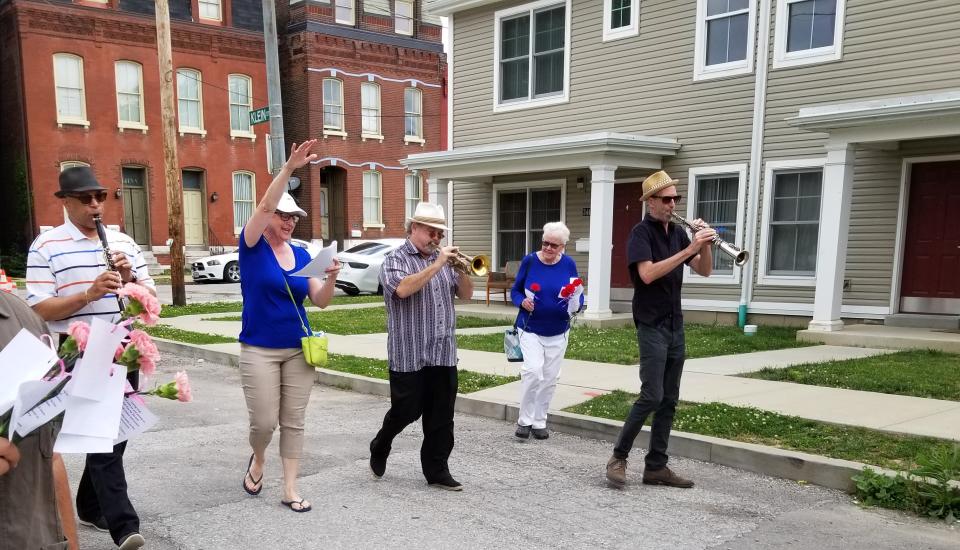
St. Charles Lwanga Center, Archdiocesan Office of Black Catholic Ministries
While the restrictions of mask mandates and social distancing have been adhered to by parishes of the Archdiocese of St. Louis, there has been a movement afoot to continue the ministry of invitation to the residents of the neighborhood. Although a sizeable number of these persons are not parishioners, the invitation to come and see has continued through the resumption of the Back to School Block Party by St. Matthew the Apostle Church. During the pre-pandemic and the easement of restrictions within the past months, the parish has gathered their usual packages of school supplies and bookbags to serve those in need within the environs of the church. The parish is located in the historic Ville neighborhood which has an early history of residency by African Americans. They feel that they are living the Gospel message through their mission statement which concludes that although the mission is born at the Eucharistic Altar, they are called "..to be sent forth into our neighborhood in order to build upon the Kingdom of God. The labor of this effort must address in deed more than in word the needs of the people."
Similarly, one of the older parishes in the archdiocese is Most Holy Trinity, founded in 1848. Several years ago after consultation with the St. Charles Lwanga Center (now also the Archdiocesan Office of Black Catholic Ministries), the idea surfaced to have outdoor gatherings, including a block party and Mass to invite neighbors into the parish experience. The idea into action lives through the pandemic as the parish has adapted their celebration of Mass in the Grass at a neighborhood park. The sampling of photos displays the Corpus Christi procession calling neighbors forth and distributing roses to them as well as the outdoor assembly of the Mass seated on the park tables and benches. Although seemingly novel in the approach, it demonstrates the parish's desire to promote the Spirit of the Lord via invitation into relationship with His congregational people. The pandemic seems to have given new resolve to the movement for the two parishes cited, an encouragement for people to lose the spiritual paralysis that can plague many of our communities.
